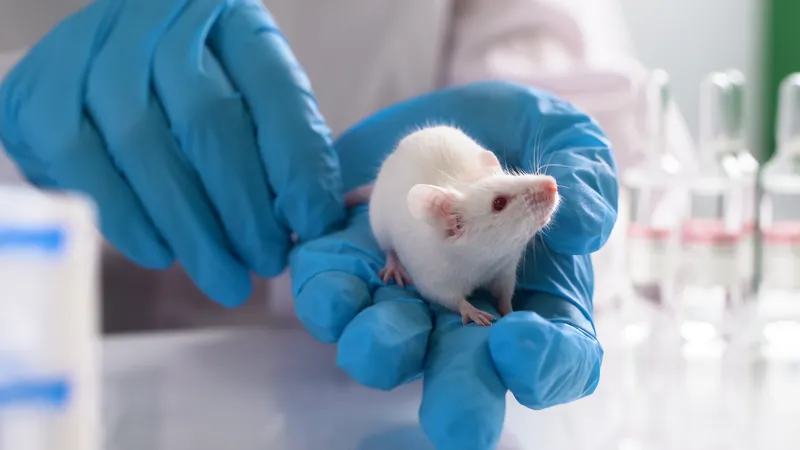
Shocking Study Reveals High-Fructose Corn Syrup May Cause Cancer in Lab Animals—Should We Be Terrified?
2024-12-22
Author: Amelia
In a startling new study, researchers have found that high-fructose corn syrup (HFCS)—a ubiquitous food additive hidden in countless products we consume daily—has been linked to cancer in lab animals. This revelation raises pressing questions: Is high-fructose corn syrup a ticking time bomb for human health?
High-fructose corn syrup has long been maligned as the “boogeyman” of modern diets. Its presence has been linked to a suite of health issues, from obesity and heart disease to type 2 diabetes. Now, this recent research takes a troubling leap, asserting that HFCS creates a unique class of lipids that can drive tumor growth in specific laboratory animal models.
But before you toss out everything in your pantry containing this sweetener, it's crucial to assess how applicable these findings are to humans. The reality is, while lab animals often act as proxies in health research—much of our understanding of medication and treatment comes from animal tests—drawing a direct line between animal studies and human health risks is fraught with complications.
The study found evidence indicating that fructose, found in HFCS, can stimulate cancer growth in controlled lab conditions. However, this does not definitively translate to how it affects humans, who have vastly different diets and lifestyles compared to lab-bred animals. These controlled environments lack the variability present in real-world scenarios, rendering it difficult to firmly conclude that high-fructose corn syrup poses the same cancer risk to ordinary humans.
To complicate matters, while the research indicates that fructose accelerates tumor growth in tested animals, it does so at rates comparable to glucose, a sugar that our bodies naturally produce and one that is also prevalent in our diets. This raises important questions about how we categorize foods as 'healthy' or 'unhealthy.'
It's worth noting that fructose isn’t just an artificial food additive—it also occurs naturally in fruits. With the syrup being a common ingredient in everything from soda to bread, completely avoiding it is nearly impossible.
Should we be concerned about high-fructose corn syrup? The answer remains a complicated mix of caution and context. As further research unfolds, consumers are encouraged to stay informed and critically evaluate their dietary choices. After all, if it’s a question of health, the stakes couldn't be higher—saving yourself from the hidden dangers of sweeteners might just be vital to your wellbeing!
Keep an eye on the evolving conversation around this controversial ingredient as experts continue to unravel the complex relationship between diet and disease in the pursuit of better health for all.









 Brasil (PT)
Brasil (PT)
 Canada (EN)
Canada (EN)
 Chile (ES)
Chile (ES)
 España (ES)
España (ES)
 France (FR)
France (FR)
 Hong Kong (EN)
Hong Kong (EN)
 Italia (IT)
Italia (IT)
 日本 (JA)
日本 (JA)
 Magyarország (HU)
Magyarország (HU)
 Norge (NO)
Norge (NO)
 Polska (PL)
Polska (PL)
 Schweiz (DE)
Schweiz (DE)
 Singapore (EN)
Singapore (EN)
 Sverige (SV)
Sverige (SV)
 Suomi (FI)
Suomi (FI)
 Türkiye (TR)
Türkiye (TR)